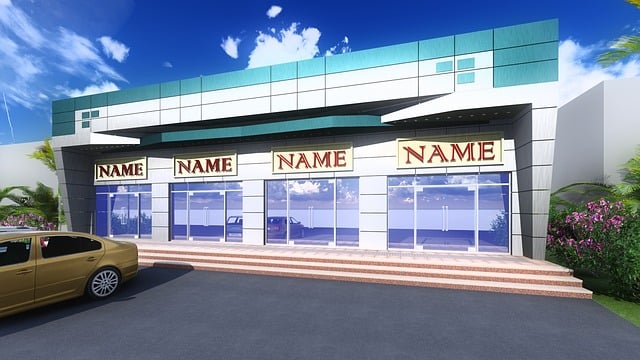The retail industry is experiencing a significant transformation with the rise of hybrid spaces that blend shopping and entertainment, driven by real estate developers seeking diverse, immersive experiences. This trend revives urban areas, encourages longer visitor stays, and promotes community engagement. Experiential retail is gaining popularity, leading investors to embrace this model for developing vibrant hubs catering to modern consumer preferences, as seen in successful mixed-use developments like Singapore's Marina Bay area.
“Unveiling the Future of Urban Spaces: Mixed Retail and Entertainment Concepts
In today’s dynamic market, retail and entertainment are converging to create immersive hybrid spaces. This article explores the burgeoning trend of integrating these sectors, examining how developers are crafting innovative mixed-use developments that captivate consumers. From site selection and design strategies to leveraging technology and embracing sustainability, we delve into the real estate secrets behind successful mixed concepts. Discover how augmented reality (AR) and virtual reality (VR) enhance customer experiences and shape the future of urban landscapes.”
The Rise of Hybrid Spaces: Blending Retail and Entertainment

In recent years, the retail landscape has undergone a significant transformation with the rise of hybrid spaces that seamlessly blend shopping and entertainment experiences. This trend reflects a strategic shift in real estate development, where property owners and developers recognize the immense potential of creating multifaceted environments that cater to diverse consumer needs and preferences. By integrating retail stores, restaurants, and entertainment venues within one space, these hybrid concepts offer visitors a more engaging and immersive experience.
The fusion of retail and entertainment has become a game-changer in urban planning, revitalizing traditional shopping districts and attracting a broader audience. These spaces not only encourage longer durations spent on-site but also foster community building and social interactions. With the increasing demand for experiential retail, real estate investors are increasingly embracing this model to create vibrant hubs that cater to modern lifestyles and entertainment expectations.
– Exploring the trend towards integrated retail-entertainment experiences

In recent years, a fascinating trend has emerged in the retail and entertainment sectors, blurring the lines between shopping and leisure experiences. This evolving concept involves integrating retail spaces with entertainment offerings, creating vibrant and immersive environments that cater to a diverse range of customer needs and preferences. Real estate developers and retailers are recognizing the potential of mixed-use spaces, where patrons can indulge in both retail therapy and enjoyable entertainment activities under one roof.
The fusion of retail and entertainment concepts is transforming traditional shopping destinations into dynamic hubs of activity. This strategy leverages the power of experiential marketing, encouraging longer visits and fostering stronger brand connections. With careful planning and execution, mixed-use developments offer a unique opportunity to enhance customer satisfaction, increase foot traffic, and drive sales, thereby contributing to the overall success and vitality of urban areas in the modern digital era.
– Case studies of successful mixed-use developments

Mixed-use developments that seamlessly blend retail and entertainment spaces have gained significant traction in modern real estate strategies. Case studies from cities like Singapore and Tokyo highlight successful implementations where vibrant retail hubs are intertwined with residential, office, and leisure facilities. For instance, the Marina Bay area in Singapore boasts a dynamic mix of shopping malls, hotels, and entertainment venues, attracting locals and tourists alike. This integrated approach not only creates 24/7 vibrancy but also fosters a strong sense of community.
These developments often leverage advanced technologies to enhance the user experience. Smart connectivity features, digital signage, and interactive retail displays engage visitors, providing personalized experiences. Additionally, sustainable design principles are increasingly incorporated, ensuring energy efficiency and minimizing environmental impact. Such innovative mixed-use concepts have proven to drive foot traffic, boost local economies, and redefine urban living standards.






